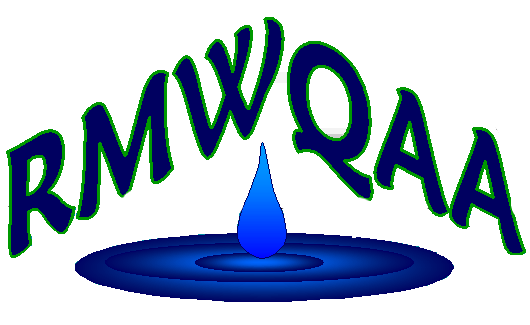After bouncing around some ideas for this month’s RMWQAA blog, I decided that what I wanted to do was to present some good local news in the water field. So I poked around a little bit, found some tidbits of good water news from the Rocky Mountain area, and decided to share.
A disclaimer: Since good news, very much like beauty, is in the eye of the beholder, these represent good news in my own personal opinion.
#1: 2019 is a very good year for snowfall!
There are a slew of different snow pack estimates out there, but the general consensus is that this year’s runoff could lift Colorado out of drought, at least for now. This oft referred to SNOTEL map from the USDA shows that the total Colorado Snow Water Equivalent is 240% of median (on 5/23/2019).

Of course, the actual amount of usable water depends on factors such as temperature, runoff, and evaporation. However, the United States Drought Monitor, which had estimated that 77% of Colorado was experiencing drought conditions as late as July 2018, earlier this month estimated that less than 1% of the state is classified as being in drought conditions.
This is also very good news for New Mexico, where predictions of flow into Elephant Butte Lake (one of the major agricultural reservoirs for southern New Mexico, and fed by Colorado’s Upper Rio Grande Basin) are at 155% of average. That is compared to 13% of average last year. This bodes well for water use and storage for all other states downstream from Colorado too.
#2: There was a new Colorado River drought plan signed on May 19
Speaking of states downstream from Colorado, all seven states (CO, NM, CA, AZ, WY, NV, and UT) in the Colorado River compact and the federal government have signed an agreement to keep Lake Powell and Lake Mead (the two largest reservoirs in the US) from being depleted. Under the agreement, water deliveries would be reduced to states based on varying water levels in the reservoirs.
This is not a perfect agreement, but it does mention the future need to adjust for global warming and the likely scenario that future water allocations may be curtailed by 15-35%. So, progress.
#3: Colorado is pushing back against lax Clean Water Act (CWA) protections
Moving on from water quantity to water quality.
Colorado’s Attorney General has called for a halt to proposed new USEPA rules that dismantle key parts of the CWA and remove important wetland and headwater protections in Colorado. These new rules would leave thousands of miles of Colorado waters without protections.
Colorado is making a stand by showing that what happens in their headwaters affects everyone downstream and is fighting for clean water for fishing, recreation (which are both important economic considerations), and animal habitat.
Colorado is one of a group of states urging the EPA and the Army Corps of Engineers (who administer the CWA) not to use the new, looser guidelines.
#4: Local water conservation taxes passed
This goes back to the 2018 November elections, but I was unaware that while state tax proposals for infrastructure and education failed (indicating a general anti-tax bias in Colorado), local water conservation taxes in Denver, Eagle, Chaffee, and Park counties passed. These local tax successes were the result of lots of groundwork - including input from local shareholders - and indicate that voters will agree to increased taxes if there is a direct need and there is a sound and fair plan for spending the money.
Hopefully this local approval of tax-based water conservation projects bodes well for funding the Colorado Water Plan (CWP), which may be offered as a ballot measure in 2020. The CWP is a huge statewide initiative that would fund new water projects, protect stream quality and aquatic life, implement conservation programs, protect agriculture, and keep up with increased demand. The estimated cost will be about $100,000,000 per year for 20 years. If offered as a ballot issue, it will be the biggest direct water issue ever put in front of Colorado voters.
I know that for water professionals there isn’t always a lot of good news right in front of us. Look for and appreciate the good news that is out there!
Rich MacAlpine, whose opinions here are solely his own, is currently a Laboratory Supervisor at Metro Wastewater Reclamation District
 Welcome to the
RMWQAA Website!
Welcome to the
RMWQAA Website!  Welcome to the
RMWQAA Website!
Welcome to the
RMWQAA Website!